Queensland Liberal National Party senator Gerard Rennick says he would support an end to the 50% capital gains tax (CGT) discount on the sale of homes, provided that negative gearing is not altered.
Rennick says ending negative gearing would just see landlords push up rents, but that he could “live with the idea” of doing away with the CGT discount.
“I’ve always had an issue with discount on passive income, not active income”, he said. “If the Greens were saying they’d remove the 50% discount on CGT gains, when realised, and use that for an income tax cut, I could live with that”.
“Then you’re lowering tax on active income. But the idea of getting rid of negative gearing would just stick rents up. People would increase the rent for their properties to make sure they don’t lose money”.
The Australian Treasury’s 2023-24 Tax Expenditures and Insights Statement report estimated that the CGT discount on the sale of assets such as property and shares saved taxpayers $25.2 billion in 2022-23:
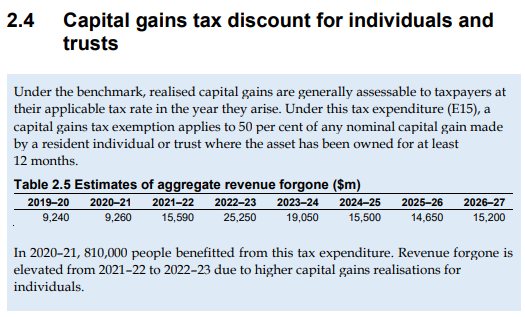
Source: Australian Treasury
Additionally, the top 10% of taxpayers received around 80% of the CGT discount benefit:
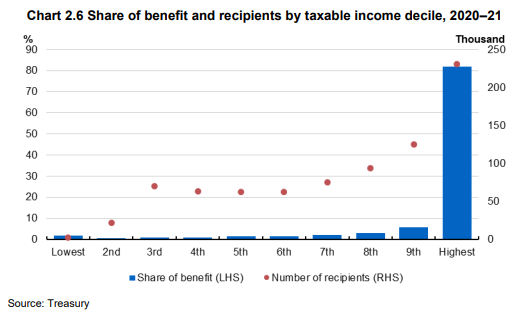
Although correlation does not imply causation, the Greg Jericho chart below shows that Australian house prices increased significantly after the Howard Government introduced the CGT discount in 1999 (falling interest rates obviously played the major role):
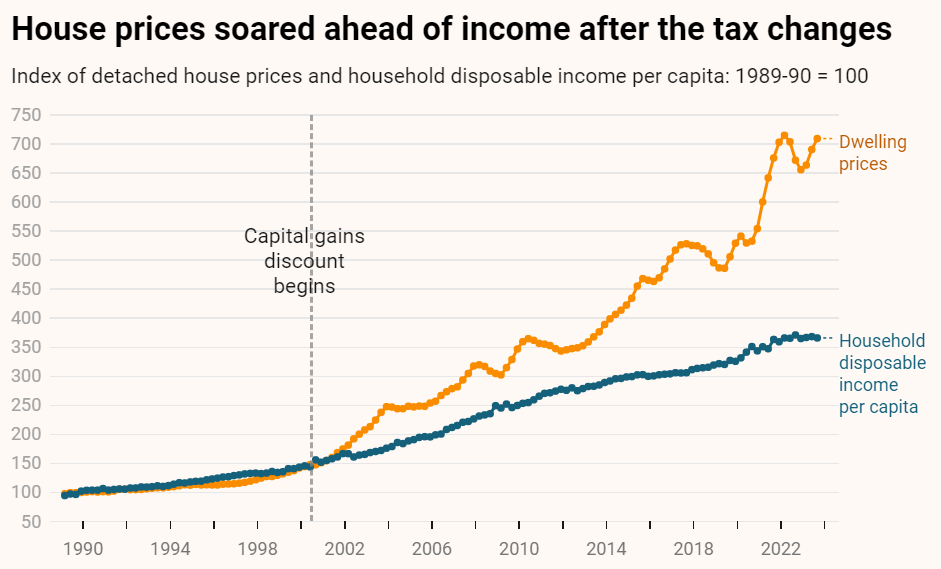
The average capital gain also surged after the CGT discount was introduced:
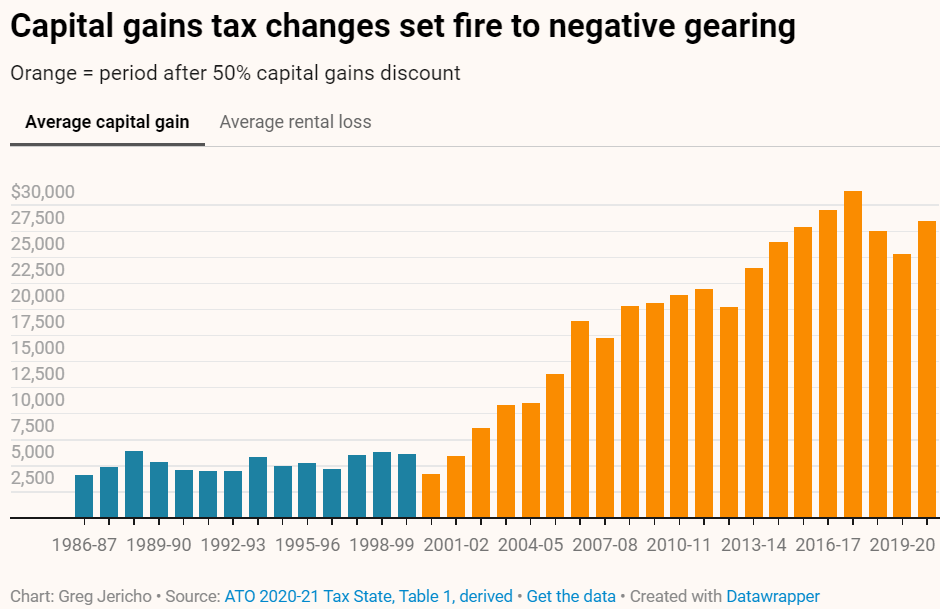
The average rental loss also rose significantly:
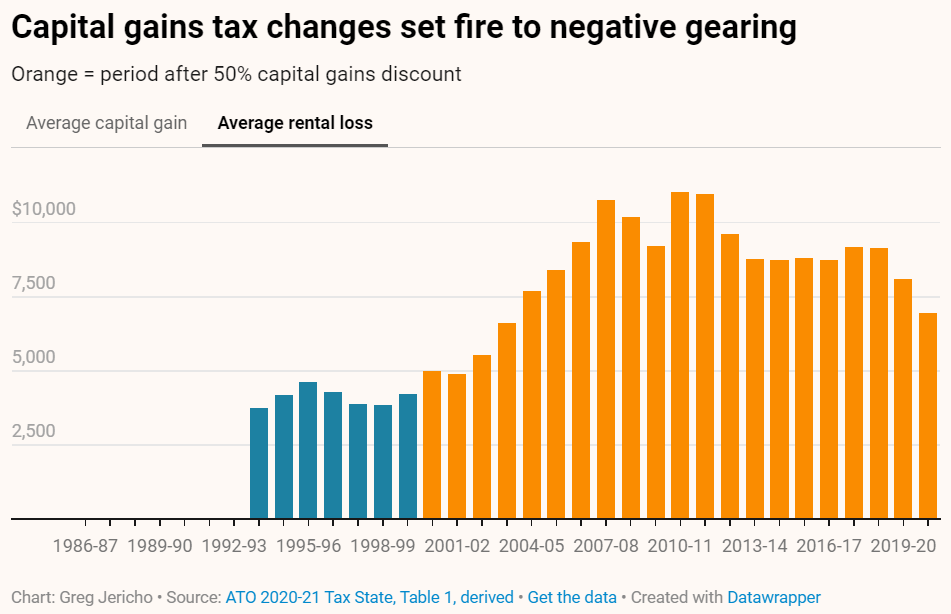
The implementation of the 50% CGT discount was clearly a policy error that has juiced investor demand and drained the tax system of revenue.
It, therefore, makes policy sense to restore the pre-1999 CGT settings, which taxed real capital gains (i.e. after adjusting for CPI inflation) at one’s marginal tax rate.
Taxing real gains would also discourage short-term asset flipping and speculation by encouraging people to hold their investments for the long-term.

